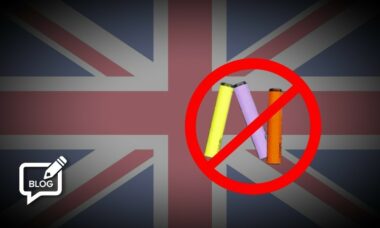 It’s clear from recently released company results that the proposed ban on disposable e-cigarettes in the UK is not expected to have much of an impact in the short term.
It’s clear from recently released company results that the proposed ban on disposable e-cigarettes in the UK is not expected to have much of an impact in the short term.
Two tobacco companies and a consumer goods firm, all with UK vaping operations, have released 2023 full-year results with forecasts for the remainder of 2024. None of them found the proposed prohibition particularly worth mentioning, despite all having some involvement with disposable products.
Tobacco companies Philip Morris International (PMI), which admittedly has almost entirely washed its hands of vaping, and British American Tobacco (BAT), which took more of a global perspective, did not seem concerned with the possibility of a ban.
One company’s take on the issue
Supreme, a consumer goods company with a large vaping section that also acts as a major UK distributor for the biggest global disposable brands (Elf Bar and Lost Mary), did mention the ban. But it said it still expected to outperform its initial forecast for 2024, despite a third of its revenue coming from the sale of disposable vaping products.
In the short term – that is, for the remainder of the year – Supreme expects its distribution deal with Elf Bar/Lost Mary to continue to surpass its sales expectations. Beyond that point, the company has stated that it fully embraces and believes in the disposables ban as a method for tackling rising youth vaping rates in the UK.
CEO Sandy Chadha said that the government’s proposals align with the company’s strategic direction and focus. “As a responsible vaping supplier,” Chadha said, “we welcome changes that help prevent under-age vaping and will work with our various stakeholders to work through the proposed legislation.”
But even with the greatest civic-mindedness and social responsibility, Supreme is still a business in a capitalist society. And losing a third of its revenue in one fell swoop would not be expected to endear leadership to the shareholders.
The company does believe that its alternative products, such as its cartridge lines, will be able to pick up some of the slack. But given the current popularity of disposable vaping products versus other categories, the question is how big a chunk of disposable vapers would switch to other already available categories.
And what happens with current disposables users who don’t switch? Would they give up vaping entirely? Go back to smoking? This is an important public health issue that needs to be considered.
Why don’t they seem bothered?
Maybe these companies see no reason to raise an alarm at present. After all, the ban is not meant to take effect until 2025. And a company involved in distribution like Supreme would not see any increase in costs from having to change production and design to be compliant in the future, while the Big Tobacco firms would find such a move easy enough to finance and achieve.
Or it could be that the companies do not expect the ban to amount to much one way or another. That might be down to the precarious nature of the current UK government, which may not even have enough legislative time remaining to achieve this aim.
Though a change to a Labour-led government is unlikely to create a light-touch regulatory environment given traditional Labour positions, it seems more likely than not the ban will eventually come to fruition.
Even so, many in the industry think that any such ban would be relatively easy to get around for disposable product manufacturers without their having to increase costs enough to affect the comparatively low price of their products for consumers.
Will any kind of ban be pointless?
How companies respond will depend somewhat on the exact phrasing of the proposed ban. For instance, adding a charging port to a device might be enough to make it no longer “disposable”.
That type of workaround would be affordable enough for disposables manufacturers who would keep making products from the same cheaper components that are not designed to last. And if the ban is not well thought-out, we could see some even skipping over including a way to refill the e-liquid – effectively keeping the device disposable.
Even forcing manufacturers to include an e-liquid refill valve or some sort of cartridge system would likely still leave a two-tier system of devices sharply separated by price: former disposables that are made for as little as possible with no view to lasting and those that are currently designed and made to be reusable.
And in that case, much of the sales of these former disposables should transition fairly easily to the new products, which would leave some to wonder whether the disposable ban really achieved its aim.
– Freddie Dawson ECigIntelligence staff






